Space
Sign up for our newsletter
We summarize the week's scientific breakthroughs every Thursday.
-
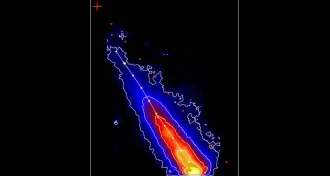 Planetary Science
Planetary ScienceComet ISON fell apart earlier than realized
Comet ISON disintegrated at least eight hours before it grazed the surface of the sun last fall, new observations show.
-
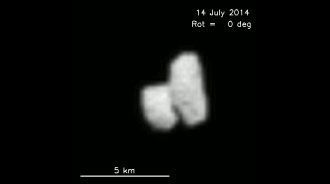 Planetary Science
Planetary ScienceRosetta spacecraft sees possible ‘double’ comet
The comet 67P/Churyumov-Gerasimenko may actually be two objects stitched together.
-
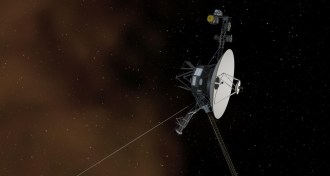 Astronomy
AstronomyVoyager may not have entered interstellar space, after all
Two scientists argue that Voyager 1 space probe is still in solar bubble, despite NASA’s announcements to the contrary.
By Andrew Grant -
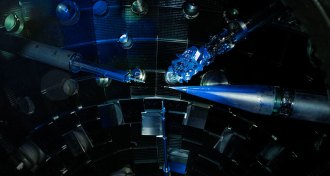 Physics
PhysicsDiamonds under pressure impersonate exoplanet cores
Scientists use lasers at the National Ignition Facility to squeeze diamonds to the extreme pressures found inside massive exoplanets.
-
 Cosmology
CosmologyLab version of early universe fails to solve lithium problem
An experiment that imitated conditions from just after the Big Bang failed to explain why observed amounts of lithium don’t match those expected from theory.
By Andrew Grant -
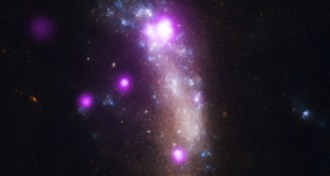 Astronomy
AstronomySupernova rapidly creates dust between stars
Astronomers watch a shell of dust form within weeks of a star’s explosion.
-
 Astronomy
AstronomyRare planet circles just one of a pair of stars
A newly discovered exoplanet orbits one star in a binary pair and shows that planets can form even with a second sun nearby.
-
 Astronomy
AstronomyYoung stars vibrate faster as they age
Stellar pulsations provide a new way to gauge ages of infant stars.
-
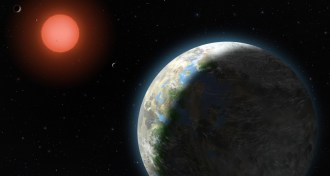 Astronomy
AstronomyExoplanets once trumpeted as life-friendly may not exist
Two exoplanets considered among the most promising for hosting life may not exist, a new study suggests.
By Andrew Grant -
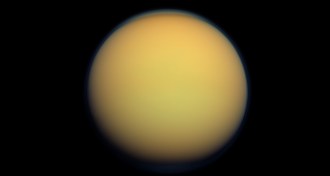 Planetary Science
Planetary ScienceTitan’s origins linked to Oort cloud
The building blocks of Titan may have formed in the early solar system, not from a warm disk around Saturn when the planet was young.
-
 Astronomy
AstronomyMagnetic bubbles could shield astronauts from radiation
With help from plasma and a magnet, solar storms' dangers would lessen on long space trips.
By Meghan Rosen -
